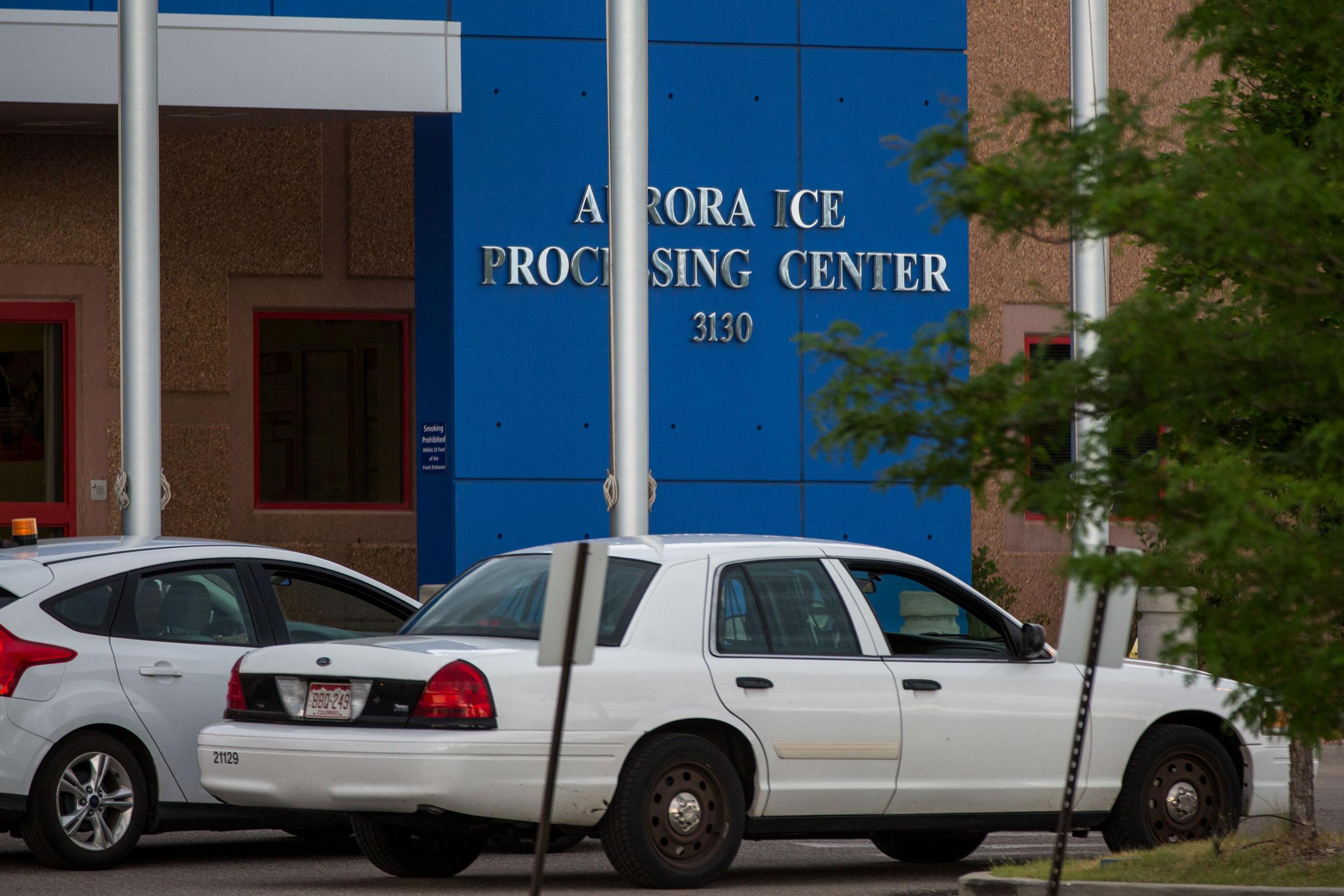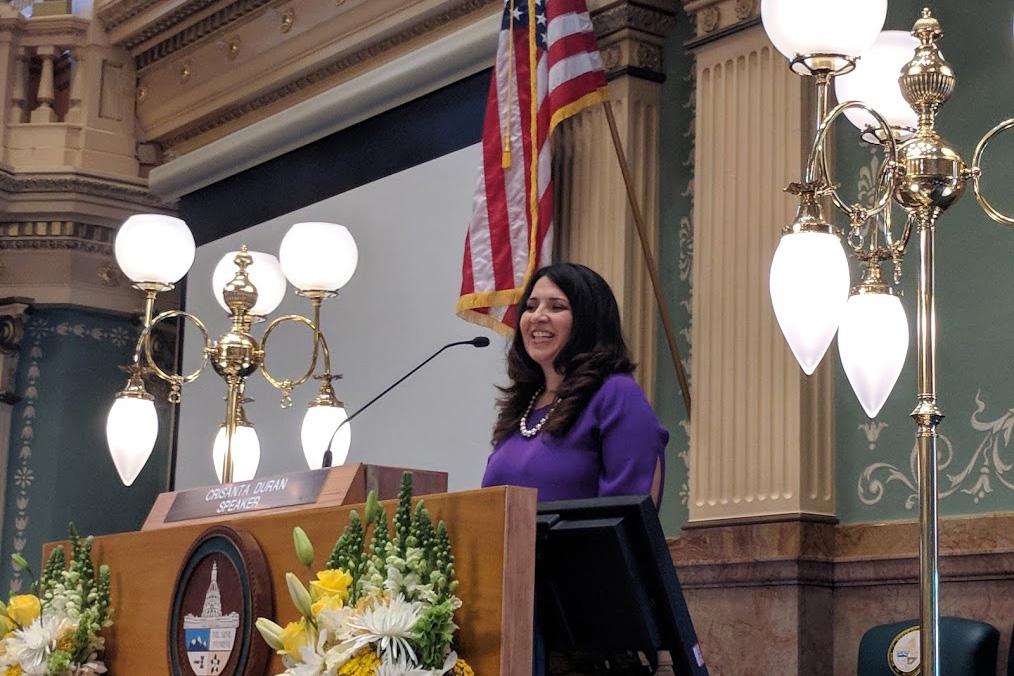
Updated: 1:40 p.m. with comment from Colorado State Patrol
Three employees of the Mesa County Sheriff’s Office were placed on unpaid leave for their role in a traffic stop that led to a University of Utah student being held by immigration officials, while the county sheriff voiced frustration with Colorado’s top law enforcement official.
Deputy Alexander Zwinck drew the focus of Attorney General Phil Weiser after he stopped a 19-year-old traveling on Interstate 70 in Mesa County and alerted immigration officials, who later arrested her. On June 5, Caroline Dias Goncalves was pulled over by Zwinck for a possible minor traffic infraction before being stopped a short time later by immigration officials.
Weiser said Zwinck shared her information with federal officials in violation of Colorado law, leading to a lawsuit filed by Weiser against Zwinck that Mesa County Sheriff Todd Rowell said “sends a demoralizing message to law enforcement officers across Colorado.”
“I ask that Attorney General Weiser apply the law equally to all law enforcement and government officials instead of making Deputy Zwinck an example. This would include filing lawsuits and hosting press conferences for each state and local law enforcement officer in the group chat and other government officials who have violated SB 21-131 and SB 25-276,” Rowell said in a statement Wednesday morning. “Alternatively, I request the Attorney General dismiss the lawsuit against Deputy Zwinck to allow internal discipline and training to take place as law enforcement across Colorado adjusts to SB 25-276.”
The internal discipline Rowell is referring to amounts to three-weeks of unpaid leave and removal from the Western Colorado Task Force, according to the sheriff’s statement. Additionally, another deputy was placed on two-weeks unpaid leave and also removed from the task force while a sergeant received a two-day suspension without pay. Another lieutenant was issued a letter of reprimand while a captain with the department was provided documented counseling.
Rowell said that Weiser refused to speak with him when he reached out to brief the Attorney General on the Mesa County Sheriff’s Office investigation, and that the information he shared with the AG showed that Colorado State Patrol as well as other local law enforcement were similarly violating the state statute against sharing immigration status with federal immigration officials.
“This was pointed out to the Attorney General’s staff with no substantive response provided. Likewise, the same day Attorney General Weiser announced his lawsuit targeting Deputy Zwinck, the Denver Post reported that the Governor has violated SB 21-131 on four separate occasions by providing personal identifying information to Immigration and Customs Enforcement,” Rowell said, adding that he was given only two hours notice that Weiser would be holding a press conference regarding the detainment.
At the time he filed suit against Zwinck, Weiser said his office was also investigating CSP, Vail Police and the Eagle County Sheriff’s Department for their participation in the chat group, something a spokesperson for the AG’s office pointed to.
"The attorney general was presented with facts that showed blatant violations of state law. As the attorney general said last week, other law enforcement agencies are under investigation for a pattern or practice of civil rights violations,” Lawrence Pacheco, spokesperson for the Attorney General, said in a statement. “The Mesa County sheriff has a job to do to investigate and discipline his employees. The attorney general has a duty to enforce state laws and protect Coloradans and will continue to do so."
Colorado State Patrol Chief Matthew Packard said in a statement Wednesday afternoon that Mesa County was too quick in their claim that state troopers had committed the same violations that Zwinck was being accused of.
“We respect Mesa County Sheriff Rowell's corrective actions, but believe his judgments regarding the Patrol are misinformed and premature,” Packard said.
Dias Goncalves spent two weeks in an ICE detention center in Aurora, saying in a statement “the past 15 days have been the hardest of my life.” Her asylum claim is now pending in immigration court.
In his statement, Rowell apologized to Dias Goncalves and said the sheriff’s office would implement more training for deputies on the state law.
“Based on our findings, the Mesa County Sheriff’s Office should not have had any role in the chain of events leading to Miss Dias-Goncalves’s detention, and I regret that this occurred. I apologize to Miss Dias-Goncalves,” Rowell said.
The sheriff’s office also clarified that it had spoken with federal officials involved in the group chat, which they said was intended only for drug interdiction work, to clarify that Mesa County Sheriff’s deputies “would not be involved in immigration enforcement” but that the investigation into the stop “showed that those lines of collaboration were crossed.”
Rowell called on Homeland Security Investigations to release the full text of the Signal chat —which was called “GJ Highway Hitters” — which law enforcement used to share information, including the facts that led to Dias Goncalves’ detainment.









